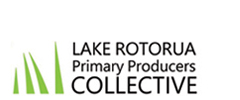Good Nutrient Management Practice Video Series
Farmers in the Lake Rotorua catchment are faced with the challenge of reducing nitrogen and phosphorus losses from their land, while still staying profitable. This video series showcases Rotorua farmers who have introduced good management practices or ‘GMPs’.
Farmers talk about their experiences of introducing a particular GMP practice and the impact this practice has on reducing nutrient losses, profitability and the wider farm system. There are ten videos in this series. The first explains the nitrogen and phosphorus cycles and how each can affect water quality. The following eight videos provide practical, proven methods of on-farm practices that can help reduce nutrient losses. The last video highlights the importance of pulling it all together within a nutrient management plan. Each of these videos is accompanied with key information farmers need to consider before adopting a new GMP.
This project was guided by the principle of ‘by farmers for farmers’. Collective members have contributed unpaid time and expertise in making this project happen, while still keeping up with work around the farm. THANKS!
WHAT IS A GOOD MANAGEMENT PRACTICE OR ‘GMP’
Good Management Practice (GMP) refers to an evolving suite of tools or practices that can be put in place at a land user, sector and industry level to help achieve community agreed outcomes – such as water quality.
LAKE ROTORUA NUTRIENT RULES
Bay of Plenty Regional Council has developed new and tougher nutrient rules for the Lake Rotorua catchment. Take a look at more information on the rules here or on the Rotorua Lakes website














